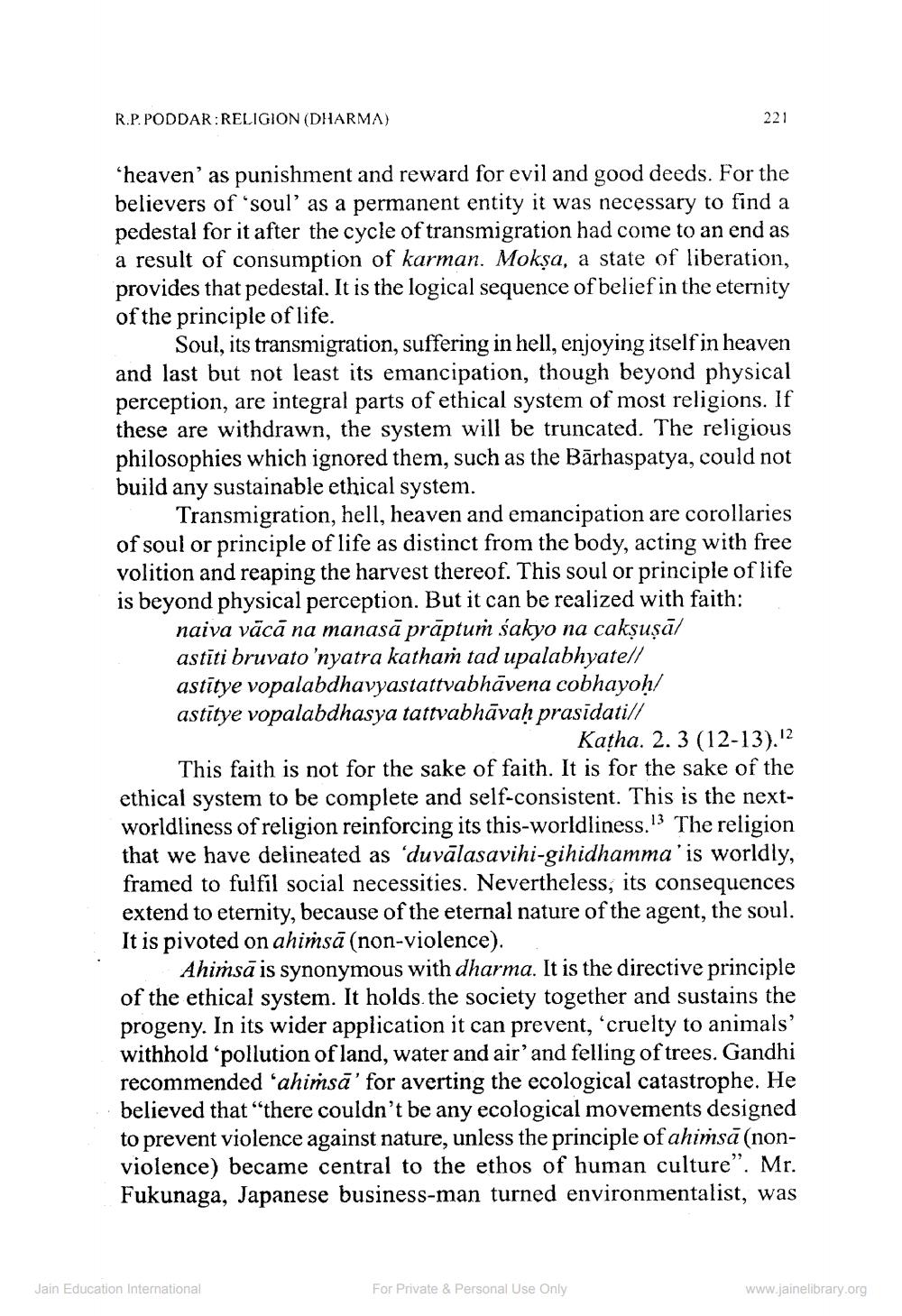________________
R.P. PODDAR: RELIGION (DHARMA)
'heaven' as punishment and reward for evil and good deeds. For the believers of 'soul' as a permanent entity it was necessary to find a pedestal for it after the cycle of transmigration had come to an end as a result of consumption of karman. Mokṣa, a state of liberation, provides that pedestal. It is the logical sequence of belief in the eternity of the principle of life.
Soul, its transmigration, suffering in hell, enjoying itself in heaven and last but not least its emancipation, though beyond physical perception, are integral parts of ethical system of most religions. If these are withdrawn, the system will be truncated. The religious philosophies which ignored them, such as the Barhaspatya, could not build any sustainable ethical system.
Transmigration, hell, heaven and emancipation are corollaries of soul or principle of life as distinct from the body, acting with free volition and reaping the harvest thereof. This soul or principle of life is beyond physical perception. But it can be realized with faith: naiva vācā na manasā prāptuṁ sakyo na cakṣuṣā/ astīti bruvato 'nyatra katham tad upalabhyate// astitye vopalabdhavyastattvabhāvena cobhayoḥ/ astitye vopalabdhasya tattvabhāvaḥ prasīdati//
221
Katha. 2. 3 (12-13).12
This faith is not for the sake of faith. It is for the sake of the ethical system to be complete and self-consistent. This is the nextworldliness of religion reinforcing its this-worldliness.13 The religion that we have delineated as 'duvālasavihi-gihidhamma' is worldly, framed to fulfil social necessities. Nevertheless, its consequences extend to eternity, because of the eternal nature of the agent, the soul. It is pivoted on ahimsā (non-violence).
Ahimsa is synonymous with dharma. It is the directive principle of the ethical system. It holds. the society together and sustains the progeny. In its wider application it can prevent, 'cruelty to animals' withhold 'pollution of land, water and air' and felling of trees. Gandhi recommended 'ahimsa' for averting the ecological catastrophe. He believed that "there couldn't be any ecological movements designed to prevent violence against nature, unless the principle of ahimsa (nonviolence) became central to the ethos of human culture". Mr. Fukunaga, Japanese business-man turned environmentalist, was
Jain Education International
For Private & Personal Use Only
www.jainelibrary.org




